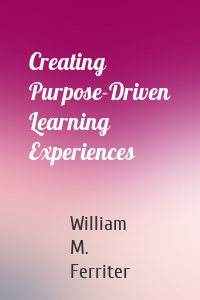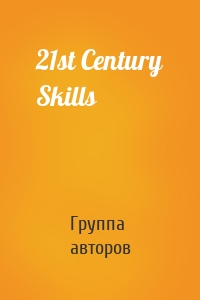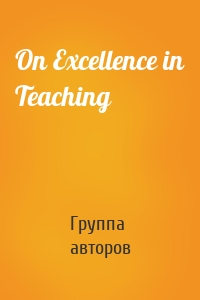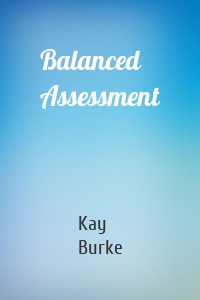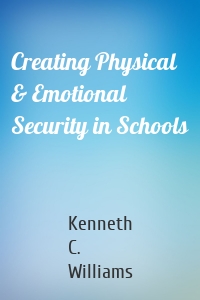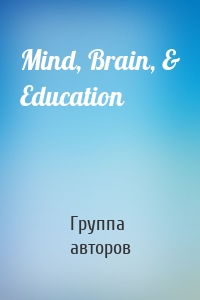Серия "Leading Edge"
11 кн.Скачать лучшие книги серии Leading Edge - автор William M. Ferriter в формате fb2 или читать онлайн, бесплатно и без регистрации. Читаемые, полные версии книг, без сокращений - на сайте Knigism.online. Скачать книги полностью в количестве 11 шт.
Creating Purpose-Driven Learning Ex...
Motivate and inspire students to learn at high levels. By bringing meaningful work to the classroom, students will develop curiosity, become actively engaged, and have a sense of purpose for their education. Discover strategies and tips for reshaping the traditional classroom environment to give modern students opportunities to exercise choice in their curriculum, master skills, and demonstrate what they’ve learned.
| Автор | William M. Ferriter |
21st Century Skills
This anthology introduces the Framework for 21st Century Learning from the Partnership for 21st Century Skills as a way to re-envision learning and prepare students for a rapidly evolving global and technological world. Highly respected education leaders and innovators focus on why these skills are necessary, which are most important, and how to best help schools include them in curriculum and instruction.
| Автор | Группа авторов |
On Excellence in Teaching
Learn from the world’s best education researchers, theorists, and staff developers as they present recommendations on effective instruction. The book provides a comprehensive view of instruction from a theoretical, systemic, and classroom perspective. The authors’ diverse expertise delivers a wide range of ideas and strategies.
| Автор | Группа авторов |
Connecting the Dots
Confront the issues that profoundly affect teachers, administrators, and students. From cover to cover, this collection is packed with examples of effective strategies for 21st century classrooms. Discover the shift in day-to-day practice that must occur to prepare students for college and careers, and look forward to what exemplary professional practices will be crucial in deepening student learning as the 21st century progresses.
| Автор | Группа авторов |
Change Wars
What can organizations do to create changes that are both profound and enduring? This anthology explores why traditional change strategies have failed and examines constructive alternatives. International experts prove successful change can be a realistic goal. Real examples of pilot projects, model schools, and other groundbreaking endeavors illustrate precisely how theory translates into practice.
| Автор | Группа авторов |
Balanced Assessment
Learn how to integrate formative and summative assessments seamlessly into instruction. The research, rationale, strategies, and examples provided in this book will help teachers develop their own repertoire of formative and summative assessments to monitor, grade, and make inferences about a student’s ability to meet standards and curriculum goals. Exercises at the end of each chapter provide opportunities to reflect and plan action steps.
| Автор | Kay Burke |
Bringing the Common Core to Life in...
Actively engage students in their own learning. Discover strategies to promote student mastery of the Common Core State Standards for English language arts across the curriculum. Explore techniques to lead students in close reading, activate their background knowledge to prepare them for learning, and gain insight into habit formation. You’ll develop the know-how to effectively structure teaching to empower all students.
| Автор | Eric Jensen |
Creating Physical & Emotional Secur...
Do your students arrive every morning to a welcoming, supportive school environment? Do they trust you and your teachers to keep them safe? Learn how you and your teachers can nurture supportive relationships with students, develop conflict management strategies, prevent different forms of bullying, establish high expectations for students and staff, and encourage celebration. You’ll also see why parent involvement creates a positive and welcoming school atmosphere.
| Автор | Kenneth C. Williams |
Breaking Through
Utilizing new research and field studies, this book provides a whole-school approach to helping English learners achieve academically while they learn English. Discover why ELs learn better when language, literacy, and subject matter are integrated, and learn how to prepare all teachers in a school to meet the needs of this growing student population.
| Автор | Группа авторов |
Mind, Brain, & Education
Understanding how the brain learns helps teachers do their jobs more effectively. Primary researchers share the latest findings on the learning process and address their implications for educational theory and practice. Explore applications, examples, and suggestions for further thought and research; numerous charts and diagrams; strategies for all subject areas; and new ways of thinking about intelligence, academic ability, and learning disability.
| Автор | Группа авторов |
On Common Ground
This anthology presents the recommendations of education leaders, and each chapter contributes to a sound conceptual framework and offers specific strategies for developing PLCs. These leaders have found common ground in expressing their belief in the power of PLCs although clear differences emerge regarding their perspectives on the most effective strategy for making PLCs the norm in North America.
| Автор | Группа авторов |


